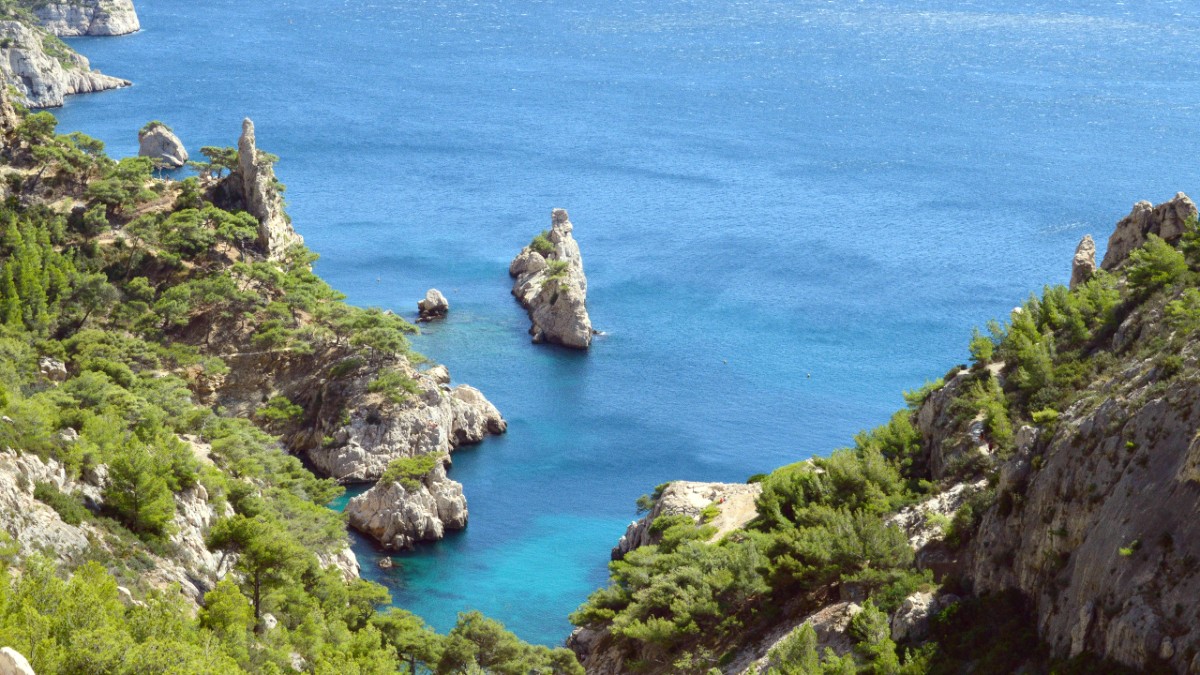
Provence, France
A highly protected area. Adhere strictly to marked trails to prevent erosion and disturbance. Do not pick plants or disturb wildlife. Check official website daily for access updates.
Marseille has color-coded recycling bins for glass, plastic, and paper. Minimize waste by using reusable water bottles, shopping bags, and utensils.
Southern France experiences water scarcity. Use water mindfully: take shorter showers, turn off taps when not in use, and avoid excessive consumption.
To reduce your carbon footprint, opt for direct flights when possible. Some airlines offer carbon offset programs, allowing you to contribute to environmental projects. Prioritize trains for intercity travel within France; they are more environmentally friendly than flying or driving. Within Marseille, use public transport or walk whenever possible.
When booking, seek hotels with environmental certifications like "Green " or "European Ecolabel." These certifications show a commitment to sustainable practices. Choose tour operators who state their commitment to responsible tourism, focusing on small group sizes, respecting natural environments, and supporting local communities.
Support local artisans and businesses that actively work to preserve traditional crafts, skills, and cultural heritage.
Be discreet when photographing people in public spaces. Respect "no photography" signs in private establishments, museums, or religious sites. When visiting churches or basilicas, dress modestly (shoulders and knees covered). Speak quietly and avoid making excessive noise. Do not disrupt religious services if they are underway.
Shop for products that contribute to rainforest conservation efforts.
The Rainforest SiteYour travel choices truly make a direct positive impact on the local economy.
Seek tours or experiences provided directly by local residents or small, independent businesses. This helps more of your money stay within the community. Support local markets, artisan shops, and businesses that explicitly commit to fair trade practices and ethical sourcing.
Be aware of any tours or activities that might exploit animals (e.g., certain animal shows) or local communities. Research before you book to ensure practices align with ethical standards. Avoid engaging in any activity that might be illegal or harmful to the local environment or population.
Dine at local restaurants, buy souvenirs from independent boutiques, and use local guides or taxi services. Your patronage sustains local livelihoods and preserves the unique character of Marseille.
If you choose to donate, do so through established local charities or non-governmental organizations. These groups have a proven track record of supporting the community. Giving directly to beggars can sometimes perpetuate problematic cycles. Research reputable local organizations if you choose to contribute.
Your decisions as a traveler play a part in promoting a healthy local economy and responsible practices.
Purchase unique, handmade items that reflect local culture.
Dine at small, family-owned restaurants that source ingredients locally.
Choose tour operators that prioritize community and environmental well-being.